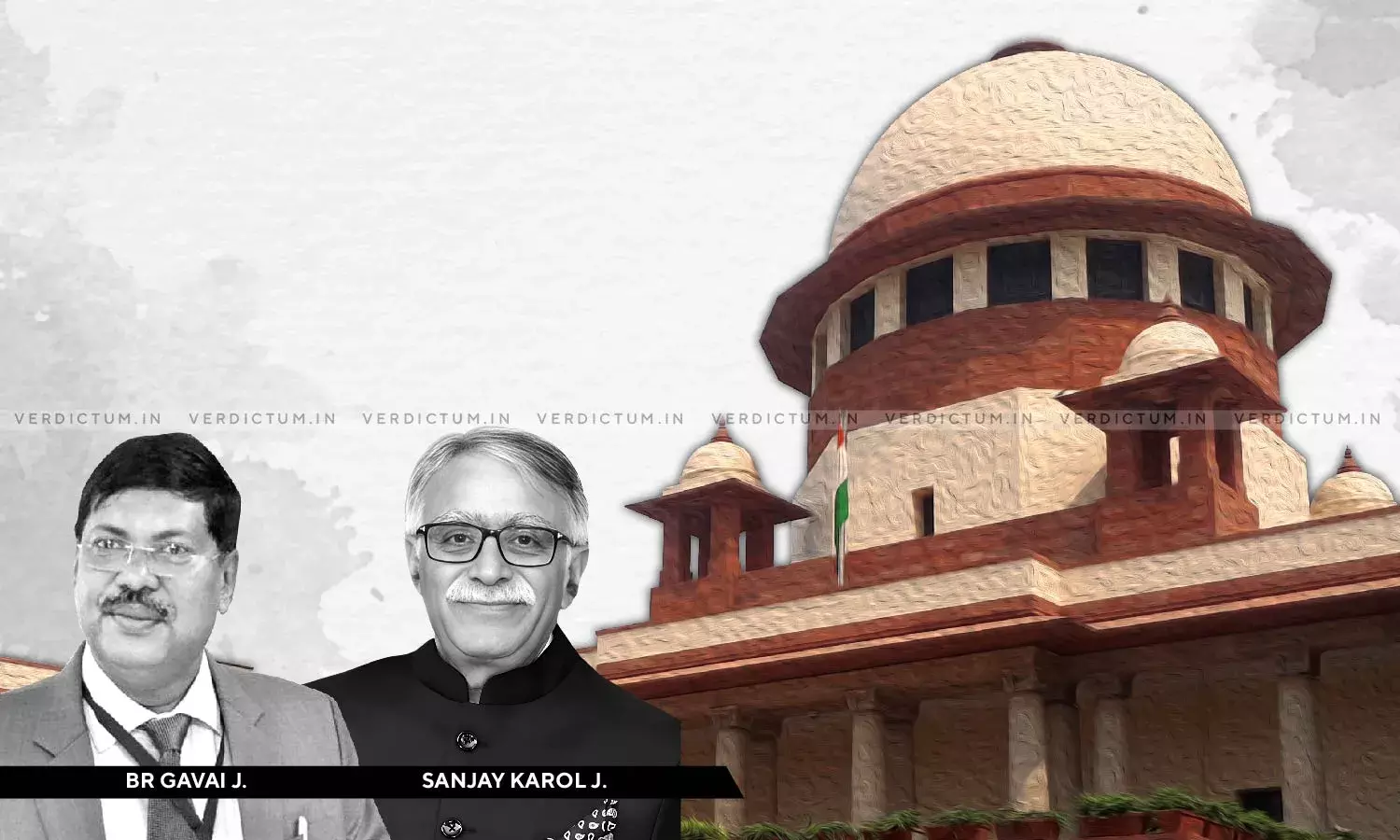Director Who Resigned Before Issuance Of Cheque By Company Cannot Be Held Liable For Cheque Bouncing: Supreme Court

The Supreme Court observed that a Director of a company who resigned before issuance of cheque cannot be prosecuted for the offence of cheque bouncing under Section 138 and 141 of Negotiable Instruments Act.
The Director of a company had resigned in accordance with the Companies Act, 1956 whereby Form 32 was also accepted. The relevant records were rectified and the changes were incorporated accordingly.
However, the Director was arrayed as an accused in a complaint filed under Section 138 of the Negotiable Instruments Act, 1881 (N.I. Act) for dishonour of a cheque on account of insufficient funds.
Justice B.R. Gavai and Justice Sanjay Karol observed, “The record reveals the resignations to have taken place on 9 th December 2013 and 12th March 2014. Equally, we find the cheques regarding which the dispute has travelled up the courts to have been issued on 22nd March 2014. The latter is clearly, after the appellant(s) have severed their ties with the RespondentCompany and, therefore, can in no way be responsible for the conduct of business at the relevant time. Therefore, we have no hesitation in holding that they ought to be then entitled to be discharged from prosecution”
AOR K. Parameshwar represented the appellant, while AOR Sumeer Sodhi appeared for the respondent.
The Court noted that the complainant had not placed any materials on record indicating the complicity of the director in the alleged crime. The Court stated that it was evident from Form 32 that the director had no role in the issuance of the instrument as he had resigned prior to the date on which the cheque was drawn and presented for realisation.
The court also noted that, if it is proved that any act of a company is proved to have been done with the connivance or consent or may be attributable to (i) a director; (ii) a manager; (iii) a secretary; or (iv) any other officer – they shall be deemed to be guilty of that offence and shall be proceeded against accordingly.
The Court pointed out, “The veracity of Form-32 has neither been disputed by the Respondent nor has the act of resignation simpliciter been questioned. As such, the basis on which liability is sought to be fastened upon the instant appellant(s) is rendered questionable.”
Accordingly, the Supreme Court allowed the appeal.
Cause Title: Rajesh Viren Shah v. Redington (India) Limited (2024 INSC 111)
Appearance:
Appellant: AOR K.Parameshwar; Advocates Arti Gupta, Kanti, Chinmay Kalgaonkar, and Raji Gururaj
Respondent: AOR Sumeer Sodhi; Advocates Sidharth Puttur and Shreya Singh

